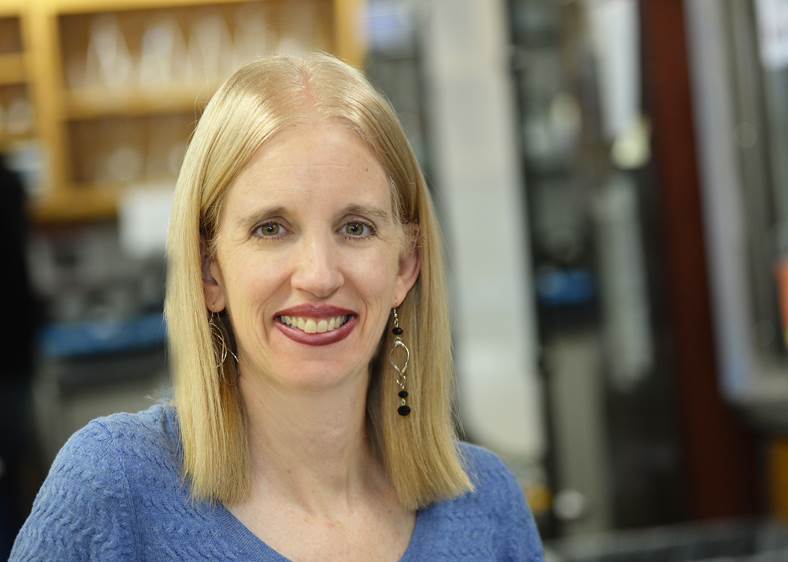
Alice Heicklen: Enriching the Amgen Scholars Experience at Columbia
To design and execute a summer research program like Amgen Scholars is no easy feat. The 10-week program at Columbia University and Barnard College in New York requires year-round planning to nail down faculty lectures, laboratory tours, graduate student and career panels, housing, flights, social events, and seminars in science communication.
Behind the scenes at Columbia/Barnard is site director Alice Heicklen, a trained biologist who has since the launch of Amgen Scholars in 2007 orchestrated these details, ensuring that students come away with a comprehensive research experience.
“To this day, Alice remains absolutely committed to the growth and success of our program,” says Michael Bergren, director of the Amgen Scholars Global Program Office at MIT. “She has a keen understanding of undergraduate researchers, and this shows in the high quality of Columbia/Barnard’s program.”
Heicklen grew up in State College, Pennsylvania, where her father was a chemistry professor at Pennsylvania State University and her mother a high school math teacher. She and her two sisters were never discouraged from asking questions, and it served them well: they all went into careers involving math or science.
As a researcher, Heicklen’s work has spanned the various scales of biological inquiry—from behavior to physiology to molecules—to drive a better understanding of health and disease. Her doctoral thesis at the Weizmann Institute of Science in Israel, for example, examined the proteins misshapen by Alzheimer’s disease. During her postdoc, she investigated the exquisite suite of controls that make a cell into a heart cell.
Heicklen settled in New York in 2000, and her current role has allowed her to strike a good work-life balance, she says. She directs the summer undergraduate research fellowship (SURF), an umbrella of programs that includes the Amgen Scholars Program. When she’s not working on these programs, she is teaching as a senior lecturer. Her developmental biology course, which she updates often to include new scientific advances, is a mix of lectures and discussions focused on recent research. In her lab course, participants sequence genes and submit their data to publically funded repositories.
“You can tell how passionate [Dr. Heicklen] is about helping young people get involved in science,” says Danielle Spitzer, a 2016 Columbia Amgen Scholar visiting from the University of North Carolina at Chapel Hill.
Many Amgen Scholars are new to the research lab, the city or both. “We felt very well taken care of when I was there, and she was a big part of making us feel comfortable and at home,” Spitzer adds.
One of Heicklen’s favorite aspects of her role as site director is to watch cutting edge biology unfold. “We have some amazing labs, and through the students, I am exposed to all kinds of biology research,” she says.
Another rewarding aspect of the program for Heicklen is her weekly seminar on scientific communication, which she has refined through the years. Her training as a scientist helps her guide the students, who will need a solid foundation for grant and paper-writing as practicing scientists.
“We start off with the fact that science is not for the elite, especially because many members of the U.S. Congress who decide about science funding do not have PhDs,” Heicklen says. “We talk about how to change wording to explain science for different audiences.”
The students begin to practice communicating immediately, even on the first day as they introduce each other to the rest of the cohort. Early on in the program, Amgen Scholars also develop an “elevator pitch” to a hypothetical research funder about their work.
“It’s important for students to understand how their research fits not only into their lab context but also how it’s connected to the world around them,” Heicklen says.

